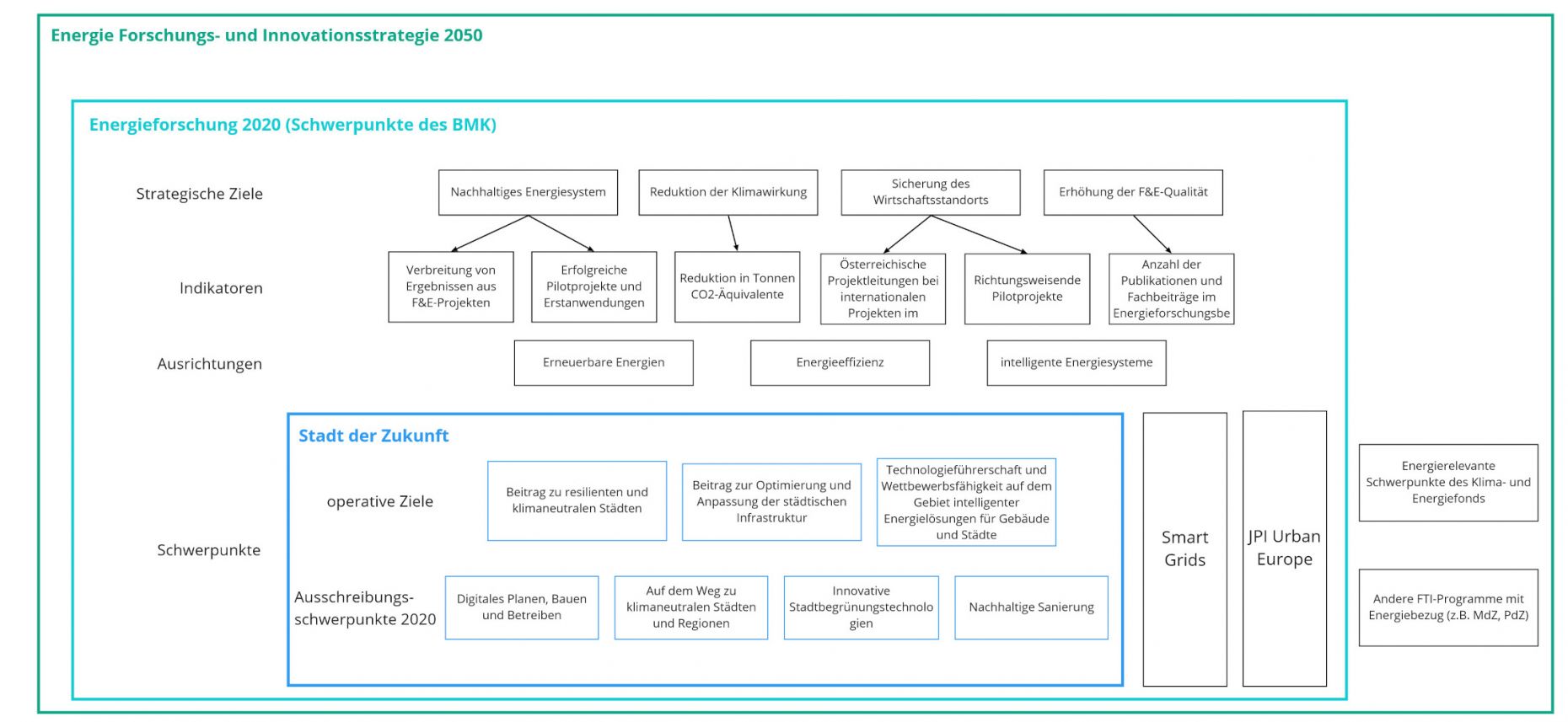Programme Evaluation of "City of Tomorrow" 2013 - 2021
Short Description
Starting point / motivation
The "City of Tomorrow" programme of the Federal Ministry for Climate Protection, Environment, Energy, Mobility, Innovation and Technology (BMK) is part of a series of established thematically-oriented research funding programmes in Austria that are dedicated to the generation of promising solutions in selected priority areas.
Funding is provided in particular for research and development projects on digital solutions, plus-energy neighbourhoods and urban greening technologies as critical components of a resilient and climate-neutral city. Since 2013, € 72,876,885 have been distributed through the "City of Tomorrow" programme to finance 259 research and development projects.
Contents, Methods and Results
This report presents the results from the evaluation of the research, technology and innovation (RTI) funding programme "City of Tomorrow" of the Austrian Federal Ministry for Climate Protection, Environment, Energy, Mobility, Innovation and Technology (BMK) for the funding period from 2013 to 2021. The evaluation is based on an extensive analysis of documentary evidence and funding data, interviews with the management team and feedback from more than 500 funding recipients and stakeholders of the programme, which was collected in two surveys and nine interviews between February and July 2022.
The evaluation shows that "City of Tomorrow" addressed an important and large gap in research funding. The programme was able to make significant contributions to broadening the innovation base and increasing the quality of R&D projects by setting timely and relevant topics as well as extensive accompanying measures. The programme proved to be an effective instrument for increasing the effectiveness of R&D projects for many funding recipients.
In line with its objectives, the programme has contributed to the development of a climate-friendly urban infrastructure as well as to the competitiveness, competence and technology leadership of Austrian companies. Due to the programme's focus on research-intensive, technological innovations, the realisation of corresponding contributions was dependent on continued public funding of R&D activities beyond individual projects.
The ambition to transfer promising building and energy technologies to entire urban districts or neighbourhoods has so far only been realised to a very limited extent. The relatively short programme duration, high degree of project fragmentation, insufficient flexibility with respect to the requirements of cities, poor coordination with the Smart Cities Demo programme, regulatory hurdles, and little consideration of social aspects for the implementation of relevant technologies proved to be important barriers to realising this ambition.
The report concludes with an outlook on the new RTI focus area "climate-neutral city" and derives recommendations for the design of this new area. The planned reconfiguration of BMK's RTI policy, in particular in relation to the "climate-neutral city", has considerable potential for setting more suitable conditions for the successful implementation of climate-friendly solutions at the level of urban districts. To fully exploit this potential, we recommend, in addition to the implementation of measures already planned, in particular the switch to a more flexible funding system, a stronger integration of technological and social innovations, and the establishment of a communication platform in support of the diverse target groups.
Project Partners
Project management
Austrian Institute for SME Research
Contact Address
Harald Wieser
Gußhausstraße 8
A-1040 Vienna
Tel: +43 (1) 505 9761 - 27
E-Mail: h.wieser@kmuforschung.ac.at
Web: www.kmuforschung.ac.at

